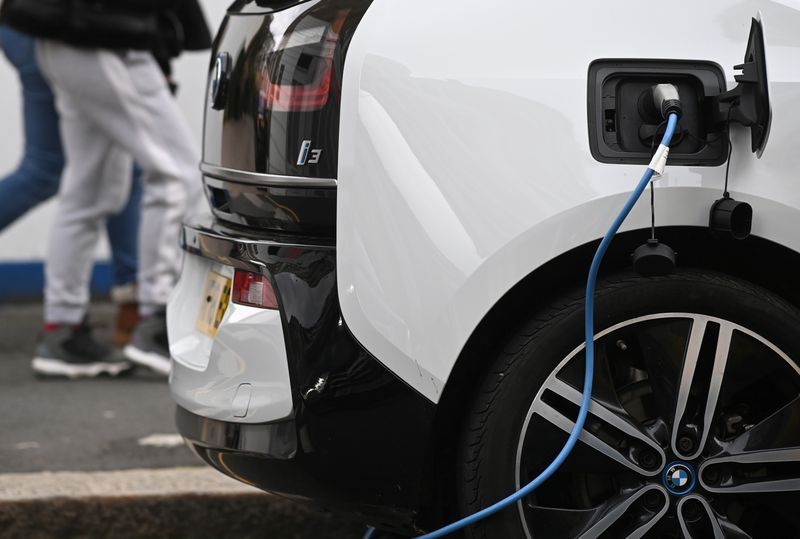
An electric car is charged at a roadside EV charge point, London, October 19, 2021. REUTERS/Toby Melville/File Photo
LONDON (Reuters) -A lack of data on electric vehicle (EV) batteries continues to challenge insurers who are forced to scrap EVs after mild accidents, potentially undermining EV adoption, Thatcham Research said on Wednesday.
The British automotive risk intelligence company cited a "concerning lack of affordable or available repair solutions and post-accident diagnostics" in a report entitled "Impact of BEV Adoption on the Repair and Insurance Sectors" the UK Government's innovation agency Innovate UK funded to examine differences between EVs and fossil-fuel models.
Insurers have complained that many EVs have no way to repair or assess even slightly damaged battery packs after accidents, forcing them to write off cars with low mileage - leading to higher premiums and undercutting gains from going electric.
Batteries can make up half of an EV's cost and Thatcham found a replacement battery can cost more than the used price of the vehicle after only one year, making replacing them uneconomical.
Adrian Watson, Thatcham's head of engineering research, said in an ideal world insurers could make informed decisions about whether to repair EVs or write it off based on access to data on its state of health after an accident.
"The reality is that's not the situation we're in at the moment," he told Reuters. "The diagnostics we have do not enable you to really know what the status of the battery is."
In a statement Mike Hawes, CEO of British industry group the Society of Motor Manufacturers and Traders (SMMT) said the car industry is "keen to engage with insurers to understand their challenges and ensure vehicles involved in an accident are properly assessed – rather than being written off by default - and the majority repaired and returned safely to the road."
Only around 1.65% of cars on Britain's roads are electric, but Thatcham said EV-related insurance claims are already 25.5% more expensive than for fossil-fuel equivalents and take 14% longer to repair.
Due to their potential fire risk, damaged EVs awaiting repair must be stored outside at least 15 metres (49 ft) from other objects.
An outside facility for 100 fossil-fuel cars today would have space to safely quarantine just two EVs, Thatcham said.
(Reporting by Nick Carey; Editing by Josie Kao and Louise Heavens)










































